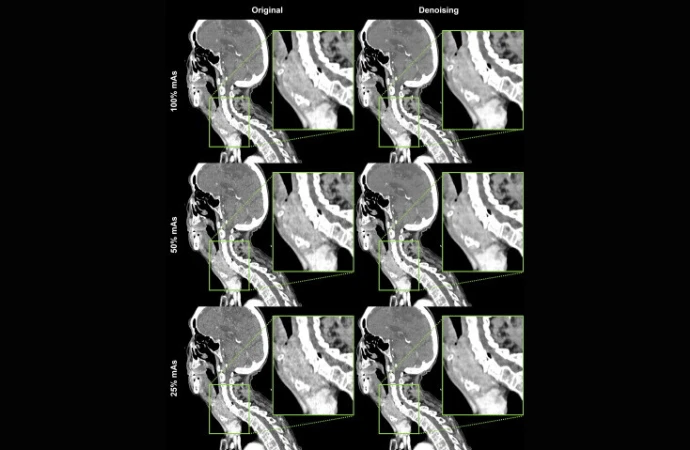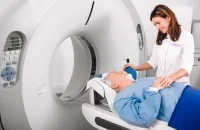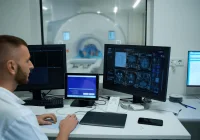Neck computed tomography (NCT) stands as a cornerstone in the diagnosis of suspected neck tumours and abscesses. However, the conventional reconstruction techniques used in NCT often pose a dilemma: how to balance diagnostic accuracy with radiation exposure. The quest for a solution led researchers to explore the efficacy of an AI-based denoising post-processing software in low-dose neck computed tomography, revealing promising insights into both image quality enhancement and radiation dose reduction. `, researchers conducted a retrospective analysis involving 50 patients with suspected neck tumors. Utilising a deep learning denoising algorithm, they investigated its impact on image quality and radiation dosing levels. The findings shed light on a paradigm shift in neck CT imaging, heralding the potential for substantial reductions in radiation exposure without compromising diagnostic efficacy.
AI Denoising: Revolutionizing Image Quality and Radiation Exposure
The study employed a comprehensive approach, encompassing both objective and subjective assessments. Objective measurements, such as the contrast-to-noise ratio (CNR), provided quantifiable data on image quality enhancement. Meanwhile, subjective evaluations from three radiologists offered valuable insights into factors like image sharpness, contrast, and diagnostic confidence. Results unveiled a clear advantage for the AI denoising algorithm across various radiation dosing levels. At each dose level, images processed with the denoising software exhibited significantly lower noise and higher CNR compared to conventional reconstruction techniques. Subjective assessments echoed these findings, with the denoised images consistently garnering higher ratings for image quality, sharpness, contrast, and diagnostic confidence.
Equivalence at Lower Doses: Implications for Clinical Practice
Of particular note was the remarkable equivalence observed between denoised images at 25% radiation dose and conventional images at 100% dose. This finding underscores the potential of AI denoising not only in enhancing image quality but also in enabling substantial reductions in radiation exposure, a critical consideration in clinical practice. Lead study author, David Plajer, M.D., highlighted the significance of these findings, emphasizing the potential of AI denoising to revolutionise neck CT imaging. The consistent superiority of denoised images in both objective and subjective assessments signals a paradigm shift, offering clinicians a powerful tool to enhance diagnostic accuracy while minimizing patient exposure to ionizing radiation.
Acknowledging Limitations and Implications for Future Research
However, the study authors acknowledged certain limitations inherent in their research, including the retrospective nature of the study, small sample size, and the utilisation of CT scans from a single scanner. Moreover, while subjective assessments provided valuable insights, the potential for bias underscores the need for further research to validate these findings across diverse patient populations and clinical settings. In conclusion, the advent of AI denoising represents a transformative milestone in neck CT imaging, offering a viable solution to the longstanding challenge of balancing diagnostic accuracy with radiation exposure. As technology continues to evolve, AI-driven innovations hold immense promise in reshaping the landscape of medical imaging, paving the way for safer, more precise diagnostic protocols.
Source & Image Credit: European Journal of Radiology









